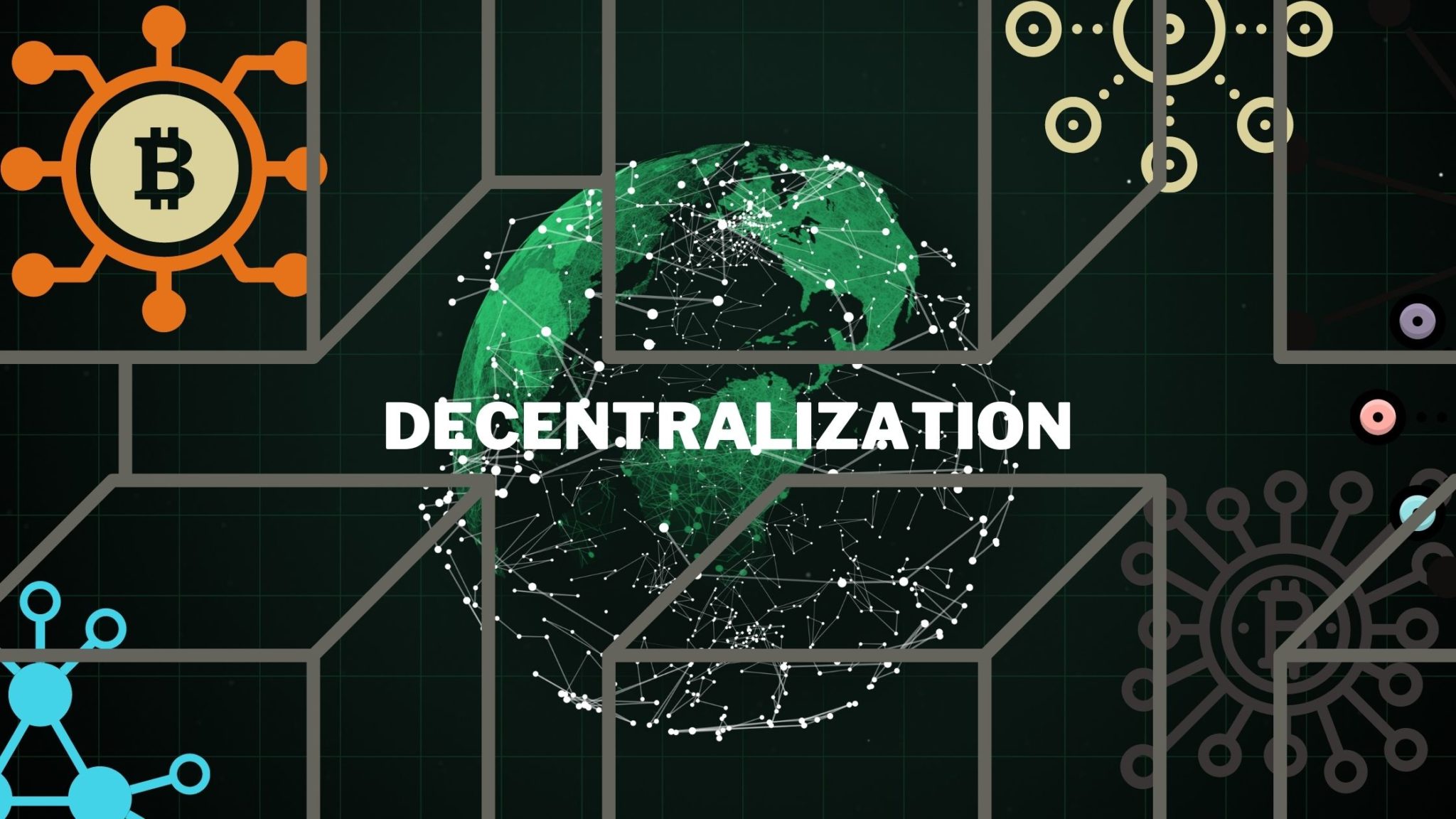DAOs, Decentralized Autonomous Organizations, provide a flat, secure and democratic structure for people to collaborate towards agreed aims. Think of them as computer-driven businesses without fatcat bosses, where the aims and codes of conduct are embedded in blockchain code. DAOs have members, not employees, with their adversarial labels of workers and bosses, and every DAO member has a say by voting on what the aims and rules are. Transactions are made in cryptocurrency, controlled through a cryptocurrency wallet held jointly by the members.

Remote working has decentralized the workplace. Image source: Thought Catalog on Unsplash
The 21st century has seen the digitization of how we get news, enjoy entertainment and socialize. We have digital versions of our favourite music, books, films and family photographs. Digital currencies, and autonomous vehicles and robots in the workplace are at early stages and making inroads. Work was decentralized – we learned we don’t all need to be in the office all the time. Now, with DAOs, we have a robust, productive organizational structure that has digitized, decentralized and democratized management decision-making functions.
Decentralization is not new, and it is definitely disruptive. It was our theme of 2018 and we covered numerous examples. The common response of the established order is to protect its vested interests, as this example demonstrates.
Examples of decentralization
A pivotal period in Europe was the 1450s when printing presses enabled much wider ownership of bibles, which weakened mass control of the people by the centralized Catholic Church. By 1478 the Spanish Inquisition was maintaining religious orthodoxy in what was Europe’s leading Catholic state. In Germany, the monk Martin Luther translated the bible from Latin to German, led the Protestant Reformation, and was decreed a heretic by the Pope in 1521. In England in 1534, King Henry VIII created an opportunity to remarry and secure his lineage by breaking from Roman Catholic control and established the Church of England. By the 1560’s, French protestants were being massacred and expelled from their country. Spain sent its navy in 1588 to depose Elizabeth I, Queen of England and daughter of Henry VIII. Unintended consequences of religious decentralization through the invention of a printing press.
Similarly, the American War of Independence and French and Russian Revolutions released nations from centralised control by monarchies. Today, cryptocurrencies decentralize the financial system from state control – hence the Establishment warns against them, and sometimes legislates against them (as in China) to protect the financial status quo.
Ideas flourish and change happens much faster these days. DOAs are a response to multiple challenges. A major one is awareness of and the realization that action must be taken now over issues of sustainability. Capitalism’s flow of investment expects and rewards growth. Corporations are locked in competition which is depleting the planet’s finite resources and fuelling the climate crisis. Increasing numbers of people don’t want to contribute to that scenario, and are looking for opportunities to collaborate as part of a less destructive way to make a living.
 More people want greater control over their self-destiny than leaving it in the hands of an employer. Also, the media attention given to cryptocurrency, with a dismissive reaction by much of the financial Establishment, has started to make people realize there could be alternatives to government-controlled national currencies. Fiat currencies are declining in value as more and more notes are printed under “quantitative easing” measures. What makes paper money, now no longer tied anywhere to the value of gold (the UK ditched its currency’s tie to the Gold Standard in 1931, the US did so partially in 1933 and completely by 1971), so much more resilient than Bitcoin or Ethereum? DAOs appear to offer a single solution, including decentralized finance (DeFi) by transacting in crypto, to these multiple pressures.
More people want greater control over their self-destiny than leaving it in the hands of an employer. Also, the media attention given to cryptocurrency, with a dismissive reaction by much of the financial Establishment, has started to make people realize there could be alternatives to government-controlled national currencies. Fiat currencies are declining in value as more and more notes are printed under “quantitative easing” measures. What makes paper money, now no longer tied anywhere to the value of gold (the UK ditched its currency’s tie to the Gold Standard in 1931, the US did so partially in 1933 and completely by 1971), so much more resilient than Bitcoin or Ethereum? DAOs appear to offer a single solution, including decentralized finance (DeFi) by transacting in crypto, to these multiple pressures.
So how do DAOs work?
A DAO can be a non-profit or a profit focused organisation. They are structured around a pre-agreed set of transparent rules and actions stored on open source blockchains. Ethereum was the first cryptocurrency network that enabled people to build DAOs. The majority of Decentralized Autonomous Organizations are thus on the Ethereum blockchain, but other networks with smart contract capabilities, such as Polkadot, Cosmos, EOS & Cardano, all enable the formation of DAOs.
An organization’s activities are driven by AI-powered computers that can operate 24/7 according to smart contract terms coded into the blockchain. Smart contracts are extremely useful for automating transactional processes, triggering other actions, and for reducing the input that humans must supply for relatively simple tasks. At the same time, a DAO’s rules enable people to self-manage their roles and safeguard an organization’s financial protocols in a flat structure. Anyone trying to do something that’s not covered by or that contravenes the rules and logic in the code will fail and not be implemented. There’s no reporting to a central command layer of senior management or governance, everything has to be done according to the rules embedded in the coding.
Rule changes are made by voting, which is a collective action taken by everyone to establish a transparent consensus of agreement. Whereas decision-making in a traditional organizational structure is usually made centrally, often secretively, by only the ‘bosses’ – CEOs, CTOs, COOs, CMOs, other directors and heads of department, and so on. In C Corporations, directors have a legal duty to maximize company value for the benefit of shareholders, and thus we have the continual drive for growth, competition, and consequently more rapid depletion of resources.
Token-controlled DAO membership and voting rights
Eligibility to vote is conferred by ownership of tokens issued by the blockchain. Though the brief history of DAOs shows that when votes require an absolute majority support of at least 51% of the token-holders to make changes, changes can happen too infrequently and the DAO may stagnate. A failure of token-holders to vote effectively becomes a vote in favour of keeping things the same, whether intentional or not, and apathy can become a constant factor of lack of change in the face of social, political, commercial or environmental concerns.
However, the smart nature of a DAO’s tokens tracks all previous votes, including the turnout (the number of token holders who voted) as well as the actual vote tallies for or against the nature of the change that was proposed each time. The DAO itself is able to determine what level of votes for any future changes would represent a significant desire to adopt them.
Types of Decentralized Autonomous Organizations
DAO membership can be kept private among the founders and a close-knit community. New members are accepted through votes for and against admitting them. In some instances, membership can additionally require payment of a fee, or be earned by providing services to the DAO. This format is typically adopted by human-centric organizations like charities, worker collectives, and investment clubs.
Alternatively, membership of a DOA could be made open to the public and sold to anyone who wants to join. For example, a DAO that wants to exert pressure for change might want a loud voice through mass membership, and will want to attract like-minded people and be able to remain a democratized entity.
The scale of a DAO ranges from basic entry cost set-up fee of 0.2 ETH charged by the Aragon DAO-builder (currently around $640 as at Aug. 29th, 2021), plus ‘gas fees’ which are the ongoing costs of implementing each DAO’s activities. The scale and urgency required for implementing a DAO’s activities means the gas fees operate on sliding scales. Priority of implementation goes to the highest payers.
At the other end of the scale, June 2021 saw the launch of BitDAO with a $230 million private sale from initial partners led by billionaire venture capitalist Peter Thiel, Pantera Capital, Dragonfly Capital and Founders Fund, plus major contributions from Singapore-based Bybit, one of the world’s largest cryptocurrency derivatives exchanges. In total, over 20 leading players in the decentralized finance industry are involved. BitDAO will invest in DeFi businesses to provide liquidity and drive new protocols such as decentralized exchanges, lending and synthetic asset financial instruments. It will also support startup blockchain projects through grants, and aid existing and emerging projects through token swaps.
Examples of DAOs
Here are other examples of what Decentralized Autonomous Organizations can be set up to do and deliver.
- Imagine a vending machine that monitors what’s selling well and what isn’t, orders stock, changes its repertoire and pricing, books and pays for a clean when required, reports any damage done to it, and remits its cashless payments back to the business.
- Or a fleet of autonomous taxis (when they are permitted), with blockchain-backed smart contracts, operating 24/7 and organizing its own repairs, maintenance and statutory checks.
- Endaoment.org is a public charity, based in San Francisco, that claims to be the fastest-growing philanthropic vehicle available to the DeFi community. Endaoment.org accepts charity donations in cryptocurrency which it converts and passes on to the nominated charities in US$. Its activities are currently overseen and developed by a community foundation, although it aims to fully function as a decentralized autonomous organization. Backers have donated and invested a total of $2.5 million into a seed funding round (June 2021), which will assist moving toward a DAO set up. The process will then be free from the risk of any funds being siphoned off by human intervention, and through total automation it can charge the lowest transaction fees.
- As they grow in numbers and establish themselves as a substantial part of the global workforce, freelance workers are demanding greater control and fairness of the terms and conditions under which they work. The Talao DOA allows freelancers in the EU to set up their own digital identity which holds immutable data on their credentials, skills, training courses completed, successful projects and client references. The idea is that clients will be confident to interact direct with these freelancers rather than channel contact through an intermediary platform that takes a slice of the work payment.
- Use a DAO to invest in startups: Rocket DAO connects digital startups and investors under the supervision of an independent expert community.
DAOs are a new way of doing business: decentralization vs centralization
Using an alternative organizational structure also requires an alternative mindset – collaborate rather than compete, make the organization’s intent publicly available, etc. To be effective this requires more of an affirmative commitment to the DAO’s aims in their own right, and to achieve them for the benefits they will deliver to a wider community; rather than a transactional commitment for personal gain. The rules and protocols are coded on a blockchain, and they can only be changed by a majority vote: individuals are unable to change them for personal benefit, or to instigate a ‘boardroom coup’ and take control.
Willingness to not accept that ‘regular businesses’ are the only way to be gainfully employed. “I want to make a living out of doing something good,” rather than “I hope that what I do to make a living can also do some good along the way.”
| A traditional organisation | Decentralized Autonomous Organizations |
| Usually with a hierarchical central command. | Usually flat, and fully democratized. |
| Depending on structure, changes can be demanded by a sole party in an asymmetric relationship, or voting may be offered | Making changes requires voting by all members |
| If voting is allowed, votes are tallied internally, voting outcomes must be handled manually | Votes tallied automatically, with automated outcome implementation automatically requiring a trusted intermediary |
| Human involvement always remains subject to concerns over manipulation | Services offered are handled automatically in a decentralized manner, according to an organization’s pre-agreed rules |
| Activity is typically private, with limited public access | All activity is transparent and fully public |
Tools for building Decentralized Autonomous Organizations
Most people are on the nursery slope of a learning curve, and heading to the DAO-building platforms that exist. Or given that most DAOs are on the Ethereum blockchain, they also have a very helpful and instructive introduction to the topic.
DAOstack
DAOstack is an open source platform that encourages people to learn about DAOs – what they are, how they work, their benefits, how to use them and how to build them. They are creating an ecosystem where people who want one can interact with people who want to build them,
They provide GEN smart-tokens which members of the DAOs hold to represent their voting rights.
Aragon
Aragon provides companies a fast and easy way to set up a DAO. It functions like a website builder in that it uses already configured modules that can be customized to suit a company’s specific needs. Aragon thus provides a valuable service that enables any firm to leverage the power of blockchain technology without hiring an in-house professional. As of May 2021, it was estimated that over $900 million of value in crypto is stored across 15,000 DAOs created by Aragon, which sit on the Ethereum blockchain.
Colony
Colony is a powerful, practical, flexible, and easy to use DAO framework based on erc20 or any other compatible token.
Brief details on other DAO builders are available.
The case for decentralization is growing, and DAOs deliver the means
At the same time that Covid lockdowns accelerated the take up of digitized business practices, they have pressured state governments to take unprecedented steps to try and keep economies buoyant and able to bounce back. Whereas the general response to the Great Depression of the 1930s was to call in loans and restrict the money supply, the mantra these days is Quantitative Easing. Governments need to distribute money to keep companies in business, people in jobs, and thus allow municipal authorities to maintain their tax income. They are issuing Treasury Bonds, and national banks including the U.S. Federal Reserve and the UK’s Bank of England are printing more cash to be able to buy them. It was happening already to keep enough money flowing in economies that rely more on their populations buying things rather than making things.
The buying power of fiat currencies is in decline. The stock of US currency has been unilaterally inflated by 120% in the last ten years by the Federal Reserve, which has reduced its buying power. A similar pattern in the UK means that the cost of an average price house is now eight times the average national income. All this means it becomes increasingly less possible for wage-earners to accrue the capital needed to build businesses and other organizations.
We tend not to hear too much about this from major media platforms, which remain under the centralized control of media moguls.
Cryptocurrency transactions transcend national barriers. Cryptocurrencies are universal and don’t need to be changed into something else to do business in another country. They can’t be devalued by central government policy, or frozen by banks. They are a vital element in the growing trend to decentralization, and a core element of decentralized autonomous organizations. There will no doubt be bumps in the road, though a decentralized future is moving nearer and nearer to being within our grasp.
Over to you. Have you any DAO experiences to share with us?






0 Comments